Ateneo collaborates with Chinese Embassy for wired, interactive classrooms
In an age when an engaging and collaborative educational environment is the norm, digital technology has become a powerful tool in transforming a student’s learning experience.
The Ateneo de Manila University has effectively used technology as a platform for some innovative programs – mainly through online courses, use of multi-media and real time interaction with counterparts from overseas.
With donations from the Chinese Embassy, a more innovative and integrated use of technology in the classroom will now be piloted at the Ateneo. These will feature Huawei communication technologies and services that will allow for higher level of interactivity within the class and with the outside world. Departing from the usual lecture style configuration, students will be arranged in pods each with a capacity to access information and interact with others simultaneously.
In his opening remarks, Ateneo de Manila University President Fr Jose Ramon “Jett” T Villarin SJ expresses gratitude to the Chinese Embassy for their donations of wired, interactive classrooms. These classrooms, he says, will make academic collaborations and cultural exchanges more accessible.
The technology will support a more interactive, collaborative and problem-solving approach to teaching and learning.
Dr. Fernado Aldaba, Dean of the School of Social Sciences, hosts the ceremony of donation.
On February 3, 2016, Ateneo de Manila University President Fr Jose Ramon T Villarin SJ and the Chinese Embassy’s Deputy Chief of Mission Counsellor He Xiangqi led the signing of the Deed of Donation for the wired, interactive classrooms at the Ateneo’s Loyola Heights campus. University administrators, Deans of the Loyola Schools and key Huawei Tech. Philippines, Inc. were also on hand to witness the signing ceremony.
The new classrooms will provide a great opportunity for the Ateneo, said Villarin.
“Through this, students will be able to simultaneously access, share, synthesize and re-create knowledge. It will allow them to interact in real time with other students overseas. Opportunities for academic collaboration, cultural exchanges and other forms of interaction – beyond official channels - will now become more accessible,” he said. Villarin added that the new classrooms will be instrumental in building engagements that foster “awareness and understanding among peoples, increasing chances of greater peace in this century.”
Fr Jett Villarin SJ (second from left) leads the signing of the Deed of Donations with Fr Jose Cruz SJ, Vice President for University and Global Relations, He Xiangqi, Chinese Embassy’s Deputy Chief of Mission Counsellor, and Mr. Wellington Liutao, Huawei Tech. Philippines, Inc. Public Relations Director.
Speaking on behalf of the Chinese Embassy, He Xiangqi expressed gratitude to the Ateneo for “promoting mutual standing between China and the Philippines.”
“We are very glad and honored to find the Ateneo a good partner in the same undertaking. It is our hope that Chinese Embassy and the Ateneo can continue the cooperation and work together to create more opportunities for the exchanges between the two countries,” she said.
Fr Jett Villarin SJ presents a token of gratitude to Counsellor He.
The donation acknowledges the long-term collaboration between the Ateneo and the Chinese Embassy built over the years. This includes the establishment of the Confucius Institute at the Ateneo de Manila University — the first in the Philippines, and the Ricardo Leong Center for Chinese Studies.
Dr. Rosita Leong, benefactor of the Ateneo’s Ricardo Leong Center for Chinese Studies, talks with Counsellor He.
More photos may be viewed in Google Photos.
